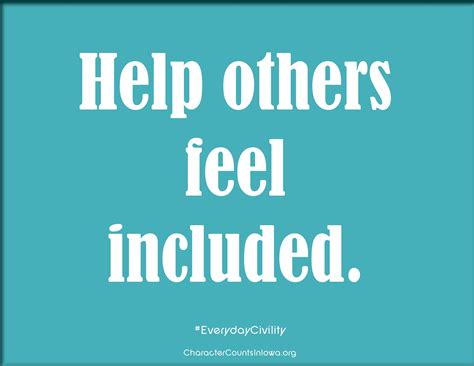 Outside Looking In
Outside Looking In
Have you ever felt like you were on the outside looking in? Like you were watching everyone else have fun while you were stuck on the sidelines? If so, you’re not alone. Many people feel this way at some point in their lives.

There are many reasons why someone might feel like an outsider. Maybe they’re new to a group or community. Maybe they’re different from the other people in their group. Or maybe they’ve been excluded from a group for some reason.
No matter what the reason, feeling like an outsider can be a painful experience. It can lead to feelings of loneliness, isolation, and even depression.
If you’re feeling like an outsider, there are a few things you can do to help yourself. First, try to identify the reason why you’re feeling this way. Once you know what’s causing your feelings, you can start to take steps to address the issue.
If you’re new to a group or community, try to get involved in activities and meet new people. Volunteer your time, join a club, or take a class. The more you interact with others, the more likely you are to make friends and feel like you belong.
If you’re different from the other people in your group, don’t try to change who you are. Be yourself and be proud of who you are. The right people will accept you for who you are, not who they want you to be.
If you’ve been excluded from a group for some reason, try to find out why. Once you know the reason, you can start to take steps to address the issue. If the exclusion was based on something you did, apologize and try to make amends. If the exclusion was based on something you can’t change, such as your race, gender, or sexual orientation, then you may need to find a new group to belong to.
No matter what the reason, feeling like an outsider can be a difficult experience. But it’s important to remember that you’re not alone. There are many other people who have felt the same way. With a little effort, you can overcome your feelings of isolation and find a place where you belong.
Feeling like an outsider can have a negative impact on your mental and physical health. Studies have shown that people who feel excluded are more likely to experience depression, anxiety, and other mental health problems. They are also more likely to have physical health problems, such as heart disease, stroke, and cancer.
In addition, feeling like an outsider can damage your self-esteem and make it difficult to succeed in school or at work. When you feel like you don’t belong, you may be less likely to take risks or try new things. You may also be more likely to give up on your goals.
On the other hand, feeling included has many benefits. People who feel included are more likely to be happy, healthy, and successful. They are more likely to have strong relationships, be involved in their community, and achieve their goals.
Feeling included can also boost your immune system, reduce stress, and improve your overall well-being. When you feel like you belong, you are more likely to take care of yourself and make healthy choices.
When trying to overcome feelings of being an outsider, there are a few common mistakes to avoid.
- Don’t isolate yourself. When you’re feeling like an outsider, it’s easy to want to isolate yourself from others. However, this will only make your feelings worse. Instead, try to get involved in activities and meet new people.
- Don’t compare yourself to others. It’s easy to compare yourself to others and feel like you don’t measure up. However, this is a losing game. Everyone is different, and there will always be someone who is better at something than you are. Focus on your own strengths and abilities, and don’t compare yourself to others.
- Don’t give up. It takes time to overcome feelings of being an outsider. Don’t give up if you don’t see results immediately. Keep trying and eventually you will reach your goals.
If you see someone who seems to be feeling like an outsider, there are a few things you can do to help.
- Be friendly and welcoming. Smile, say hello, and make eye contact. Let the person know that you’re interested in getting to know them.
- Invite them to join in. If you’re involved in an activity, invite the person to join you. If you’re eating lunch with a group of people, ask if they would like to sit with you.
- Listen to them. If the person wants to talk, listen to them without interrupting. Let them know that you care about what they have to say.
- Be patient. It takes time for people to feel included. Don’t get discouraged if the person doesn’t warm up to you immediately. Keep trying and eventually they will come around.
Feeling like an outsider can be a difficult experience. But it’s important to remember that you’re not alone. There are many other people who have felt the same way. With a little effort, you can overcome your feelings of isolation and find a place where you belong.
- The National Suicide Prevention Lifeline
- The National Alliance on Mental Illness
- The American Psychological Association
- The Impact of Social Exclusion on Health
- The Benefits of Feeling Included
- Common Mistakes to Avoid When Trying to Overcome Feelings of Being an Outsider
- How to Help Others Feel Included
